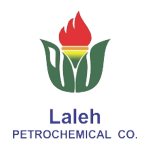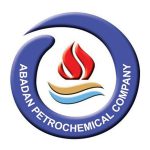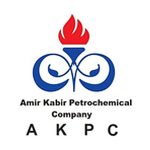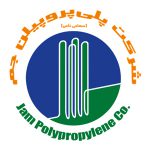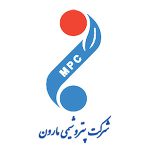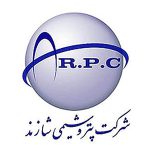Ammonium Sulfate
Ammonium sulfate is one of the inorganic mineral salts, and it’s chemical formula is (NH4)2SO4. It has widespread applications in various industries, especially in agriculture. The density of this substance is 1.77 gr/cm3, and its molecular weight is 132.14 gr/mol. This compound serves as a primary source of nitrogen and sulfur for the growth of trees and agricultural products. This material contains 21% nitrogen and 24% sulfur. Its main application in agriculture is in the production of nitrogen fertilizers, which help farmers by improving soil quality and reducing pH levels.
Fertilizers are essential components of the cultivation and growth process of plants, used to compensate for the deficiency of nutrients in the soil to nourish plants. When the nutrient levels in the soil are sufficient for plants, there is no need for fertilizers. However, in cases where the soil becomes depleted of nutrients due to continuous cultivation and cropping, plants can no longer thrive, and it becomes necessary to supply the required nutrients for plant growth.
Ammonium sulfate, due to its ionic structure, dissolves readily in water to a high extent, increasing the water conductivity. This compound is solid at room temperature, odorless, and white in color, and when dissolved in water, it lowers its pH to between 5 and 6. Its slightly acidic nature makes it useful for pH regulation purposes.
For more accurate information regarding prices or purchasing the product, it is better to contact the sales department of Petro Nour Mehr Company.
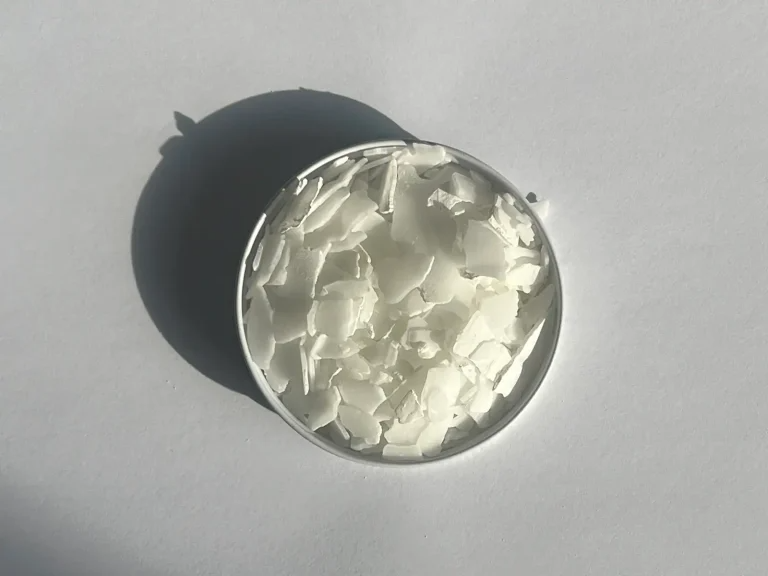
Ammonium Sulfate Manufacturers in Iran
Urmia Petrochemical and other domestic factories are producers of this polymer material in Iran.
These units are among the largest ammonium sulfate producers in Iran and play a significant role in supplying domestic needs and exporting this material to global markets.
Ammonium sulfate Manufacturers Worldwide
Some reputable producers of ammonium sulfate worldwide include:
- Mosaic Company : One of the largest producers of chemical fertilizers and crop nutrients in the world, with production facilities in Florida and Canada.
- CF Industries : Another major producer of crop nutrients and chemical products in North America, with products including ammonium nitrate, ammonium sulfate, and potassium sulfate.
- Nutrien : One of the largest producers of crop nutrients globally, with production facilities in Canada and North America. Ammonium sulfate is among the products manufactured by this company.
These producers are just a few examples of companies active in the production of ammonium sulfate globally. There are also other companies involved in this industry, producing various types of this chemical compound.
Applications of Ammonium sulfate
This material is a versatile compound with several applications:
- Fertilizer: One of the primary uses of ammonium sulfate is as a fertilizer. It provides essential nitrogen and sulfur nutrients to plants, promoting healthy growth and enhancing crop yield. It’s particularly beneficial for alkaline soils where other nitrogen fertilizers might not perform as well.

- Industrial Processes: It is used in various industrial processes. For example, it’s employed in the production of certain chemicals, including ammonium salts, pharmaceuticals, and textiles.

- Food Additive: In the food industry, ammonium sulfate can be used as a dough conditioner in bread-making. It helps to strengthen the dough, improve its elasticity, and extend shelf life.

- Water Treatment: This material is sometimes used in water treatment processes to remove pollutants, such as heavy metals, from wastewater.
- Fire Retardant: In firefighting, ammonium sulfate-based solutions can be used as fire retardants, particularly in fighting wildfires. These solutions can help suppress the flames and reduce the spread of fire.

- Laboratory Reagent: It’s commonly used in laboratories as a reagent for various chemical reactions, including protein purification and crystallization.

- Pharmaceuticals: This material can also be used in the pharmaceutical industry as an ingredient in some medications or as a reagent in certain laboratory processes.
These are just a few examples of the many applications of this material. Its versatility makes it a valuable compound in various industries.
Storage Conditions for Ammonium Sulfate
In fertilizers like this material, the presence of nitrate anions increases their water solubility, although plants readily absorb them. However, due to the positive charge of ammonium sulfate fertilizer, it does not become water-soluble and does not lead to pollution of water sources, especially groundwater. The presence of sulfur in this fertilizer and its decomposition led to the production of sulfuric acid. Additionally, the available nitrogen, when reducing soil alkalinity, cannot have a significantly adverse impact on the environment. Therefore, the discussed fertilizer has minimal negative effects on the environment.
There are some guidelines for better preservation of its quality:
- It is ideal to keep these materials dry and cool; a temperature of less than 25 degrees Celsius is preferable for storage.
- Keep this material out of direct sunlight and ultraviolet light, since these sources of light may alter its chemical and physical characteristics.
- These substances react with acids and solvents, among other compounds. It is therefore recommended to stay away from direct contact with these kinds of compounds.
- During storage and transportation, ensure that this material is protected from scratches and impacts, as physical damages can lead to changes in its structure and chemical properties.
- Packaging for this grade should be made of suitable material to protect it from environmental changes and reduce the penetration of water and air into the packaging.
- Certain items can need particular storage conditions. Consult the manufacturer’s directions in this situation.
Ammonium sulfate Packaging
For packaging and exporting Ammonium sulfate granules, various methods can be employed depending on environmental conditions, product requirements, and transportation facilitation for export. The following are some typical ways that Ammonium sulfate granules are packaged and exported:
- Packaging in Jambo Bags: This method is common for packaging this material granules, where the granules are packed into large bags with varying capacities (usually between 500 to 2000 kilograms). These bags are appropriate for air, sea, and road transportation in addition to protecting the product from contamination and moisture.
- Packaging in Small Bags: In this method, this material granules are packed into smaller bags with capacities of approximately 20 to 25 kilograms.
- Use of Pallets: Ammonium sulfate large pallets.
Choosing the right packaging and exporting strategy for this material granules can be accomplished with success if international packaging standards, labeling, and transportation requirements are followed. It’s crucial to think about protecting the product from environmental deterioration, shocks, and humidity while it’s being transported.
Advantages and disadvantages of ammonium sulfate
Advantages:
- It serves as a primary source of nitrogen and sulfur for plants, making it a desirable agricultural fertilizer that aids in plant growth and development.
- This material is used as a key chemical in various industries including textiles, dyeing, and plastics manufacturing. It holds special importance in the production of nylon and synthetic fibers.
- It functions as a flame retardant in combustible materials, controlling heat generation and reducing the risk of explosions.
Disadvantages:
- Excessive use of ammonium sulfate can increase soil pH, which may adversely affect sensitive plants and disrupt their growth.
- Improper or excessive use of this chemical compound can lead to plant toxicity, causing harm instead of aiding growth.
- The use of ammonium sulfate may contribute to nitrogen and sulfur leaching into the soil and water, potentially resulting in negative environmental impacts such as groundwater and surface water pollution.
Physical and chemical properties of ammonium sulfate:
The physical and chemical properties of this material have been carefully studied, indicating that ammonium sulfate is a crystalline compound with the chemical formula (NH4)2SO4. This compound appears in the form of white granular or crystalline grains. Here are the physical and chemical properties of ammonium sulfate:
- It appears as white granular or crystalline grains.
- This compound dissolves in water and, due to its ionic nature, has high solubility in water and readily absorbs water.
- This material is solid and white in color at room temperature.
- When dissolved in water, it lowers the pH to 5 to 6.
- The melting point of this compound is approximately 116 degrees Celsius.
- The chemical formula of ammonium sulfate is (NH4)2SO4.
- This compound contains 21% nitrogen and 24% sulfur.
- Its slight acidity can be effective in adjusting the pH of agricultural soils.
- The main application of ammonium sulfate is in agriculture, as a nitrogen fertilizer.
- It is also used in other industries such as mining and chemical manufacturing.
- Due to its good solubility, this compound precipitates the protein structure and acts as a precipitant.
- It can be used as a supplement in sulfur-deficient soils.
These physical and chemical properties provide a wide range of applications for ammonium sulfate in various industries, including agriculture, mining, and chemical industries.
Types of Ammonium Sulfate:
Ammonium sulfate is produced in various forms including powder, crystals (fine and coarse), and granules. According to the latest report published by Argus Institute, among the five morphologies of ammonium sulfate fertilizers worldwide, spherical granular morphology is recognized as one of the most popular grades of this compound.
Granules with a diameter larger than 2 millimeters and a spherical shape, produced by synthetic methods using granulation technology, have the best quality and are used for the production of NPK fertilizers. After spherical granules, coarse crystals are considered to have high quality and are one of the good grades of ammonium sulfate. Coarse crystals with dimensions larger than 2 millimeters, produced by synthetic methods using crystallization technology, are used in the production of various NPK fertilizers.
When the crystal size exceeds 3/5 millimeters, a higher quality grade is obtained. Crystals with sizes less than 2 millimeters and compacted granular ammonium sulfate constitute other common grades of ammonium sulfate, which are directly used as fertilizers. The produced crystal ammonium sulfate, as a by-product of other processes, usually has a brownish color and impurities, considered as lower-quality grades, but if it meets the standard, it can still be used in agriculture.
Products with higher grades (coarse crystals and spherical granules) are usually considered premium products and their prices in global markets are higher compared to other grades. Fine crystals and compacted granular ammonium sulfate are considered common grades in the market, and their prices are usually lower than other grades in global markets.
Comparison of Ammonium Sulfate with Other Fertilizers:
Ammonium sulfate is a chemical fertilizer containing nitrogen and sulfur. This fertilizer is commonly used in agriculture as a source of nitrogen and sulfur for plants. Comparing ammonium sulfate with other chemical fertilizers such as ammonium nitrate, ammonium sulfate, and superphosphate can be useful. For example, ammonium nitrate is also a source of nitrogen, but in addition to nitrogen, it contains ammonium, which can act as a rapid nitrogen source for plants. On the other hand, ammonium sulfate is another nitrogen source that contains ammonium sulfate and is commonly used as a topdressing fertilizer. Each of these fertilizers has specific characteristics and applications that depend on the needs of the plants and soil conditions in which they are used.
How to Buy Polyethylene?
- Buy from a reputable and authorized supplier that holds necessary certifications and guarantees quality.
- Compare the prices of these materials in different markets and compare them with the global market price.
- Examine the sales conditions regarding quantity, delivery time, packaging, transportation methods, and payment terms.
- If you intend to import polystyrene from foreign countries, investigate customs and legal regulations and comply with export and import regulations.
- Contact bravopolymer to obtain the most suitable export price based on your conditions.
- After signing the contract, you can place your order.
- Secure and suitable payment methods according to customer preferences are provided by the company.
- Then, the loading stage is completed by selecting and introducing a transport company.
- Necessary documents for customs clearance at the destination city are also provided to customers by bravopolymer.
The largest distributor of polymers in the Middle East



